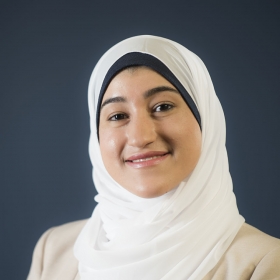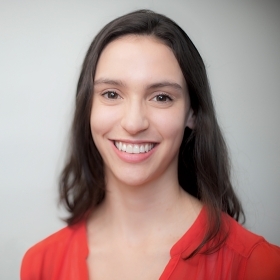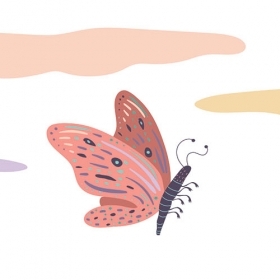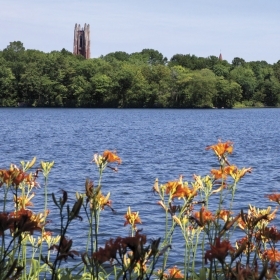Nisreen Abo-Sido ’18
This summer, Nisreen Abo-Sido ’18 embarks on 12 months of travel to farms and gardens in Iceland, Peru, Malawi, and Italy, supported by a $30,000 Thomas J. Watson Fellowship. She will work alongside farmers, ranchers, and gardeners to learn how they manage agricultural systems that produce food while fostering the ecological interactions that sustain the land.

Photo by Richard Howard
Nisreen Abo-Sido ’18 didn’t grow up on a farm—but her feelings for the land run deep. “My grandparents were small farmers, and their connections to the land were strong, as Palestinian refugees who were forcibly removed from their homeland,” she says. “I feel a deep connection to my farming roots and the value of traditional knowledge.”
Abo-Sido’s family settled in Quincy, Mass., where she was raised. “I used to garden with my mother, and while working in the weeds she would always proudly call herself a fellaha, an Arabic term that literally translates to peasant farmer—but in Arabic, fellaha doesn’t come with the negative connotations that ‘peasant’ does. Rather, she was so proud because a fellaha is someone who really knows that land. The peasant knowledge of small farmers was something that my family had valued for a long time.”
Late this summer, Abo-Sido, who is an environmental studies major, will go global to connect with that kind of knowledge. She will embark on 12 months of travel to farms and gardens in Iceland, Peru, Malawi, and Italy, supported by a $30,000 Thomas J. Watson Fellowship. She will work alongside farmers, ranchers, and gardeners to learn how they manage agricultural systems that produce food while fostering the ecological interactions that sustain the land.
Abo-Sido is one of three Wellesley seniors to be granted a prestigious Watson Fellowship this year. Hans Han ’18, an economics major, will focus on urban transit systems in Santiago, Dubai, Seoul, Berlin, and Moscow, studying patterns of discrimination and negligence. Carol Hundal ’18, an astrophysics major, will explore what it would be like to actually live on another planet by visiting remote places such as the Lakager Highlands in Iceland, the Atacama Desert in Chile, the highest dunes in the world in Namibia, and impact craters in Western Australia.
“When I came to Wellesley, I was pretty sure I wanted to study biology and think about human health,” says Abo-Sido. Then she took an environmental studies course on food, agriculture, and sustainability. “I had never really connected issues of food and agriculture to environmental studies. Having grown up in a city, I didn’t think much about the fact that food came from the ground. But after that course, I started to think more about our food systems. I decided to study the environment and connect it to human health, and I found that food was the common denominator.”
This year, the Watson program celebrates its 50th year of funding new college graduates so that they can travel anywhere in the world pursuing a dream project. Wellesley started participating in the program in 1980–81. In 2017–18, 40 partner institutions nominated 152 finalists to compete at the national level. Wellesley’s three honorees were among 40 fellows selected.
Watson fellows may not return to the United States during their year of travel, and they may not affiliate with formal college or university programs. In other words, they’re on their own. “The Watson emphasizes that there really isn’t a deliverable product” at the end of the experience, says Abo-Sido. “It’s really about your growth and what you make of it. What’s simultaneously the most exciting thing about the Watson is the most terrifying—the complete freedom to make this project your own.”
Traveling alone around the world as a Muslim woman wearing hijab doesn’t worry Abo-Sido. “I think there’s a beauty with sticking out as a Muslim woman,” she says. “I know I’m never going to fit into where I go, because I’m not from any of those places. And I don’t think I’d ever try to pretend I’m a local. Being a Muslim woman, I’ll already stand out, and hopefully that will attract people to help me.”
Abo-Sido is excited about discovering how small farmers around the world produce food while honoring the ecology of their home places. But she’s not altogether sure where the adventure will lead her next. “The only thing I do know is that this year is going to be transformative,” she says. “It’s going to be integral to whatever trajectory I’m on.”


